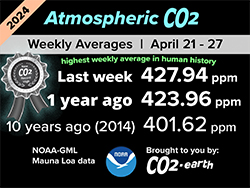NFT & Pollution
The Environmental Impact of Blockchain and NFTs
Welcome to Hoken Tech
Blockchain and NFTs (Non-Fungible Tokens) are revolutionizing the digital world, offering new opportunities in various sectors, from art to games, to finance.
However, with the increase in popularity, concerns about the environmental impact of these technologies are also emerging.
Blockchain and Energy Consumption
Blockchain is a decentralized and immutable record of data, whose security is guaranteed by a process called mining.
In mining, computers solve complex mathematical problems to validate transactions and add new blocks to the chain.
This process, known as proof-of-work, requires a significant amount of computing power, and consequently, energy.
According to the Cambridge Bitcoin Electricity Consumption Index, Bitcoin alone consumes approximately 110 terawatt-hours of electricity per year, equal to 0.55% of global electricity consumption.
The Carbon Footprint of NFTs
NFTs, being based on blockchain, also contribute to this energy consumption. Every time an NFT is created, bought, or sold, a transaction is recorded on the blockchain, thus requiring energy.
Criticisms and Controversies
Some argue that the environmental impact is too high a price to pay for blockchain technology and NFTs.
On the other hand, others believe that the responsibility lies with the producers and users of these technologies to find more sustainable solutions.
Solutions and Eco-Friendly Alternatives
There are alternatives to proof-of-work that could significantly reduce the energy consumption of blockchain.
One of these is proof-of-stake, a transaction validation method that requires less computing power and therefore less energy.
For example, the EOS blockchain, which uses the DPoS consensus protocol, has become climate-positive since 2023, as 80% of the energy it consumes comes from renewable sources, making it perfect for this type of project.
Conclusions
In conclusion, while blockchain and NFTs offer exciting opportunities, it is crucial to address the environmental challenges they pose.
Awareness of the environmental impact of these technologies is the first step towards positive change.
Not surprisingly, the startup Hoken Tech has chosen the EOS blockchain to be more sustainable, driven by technological innovations and greater environmental responsibility from all actors involved.
nft, hoken tech, blockchain, cryptoart, eos, nft art, artificial intelligence, ai, watch authentication, crypto artist, nfts, web3, nft game, web3 game, videogame, nft distributor, videogame blockchain







